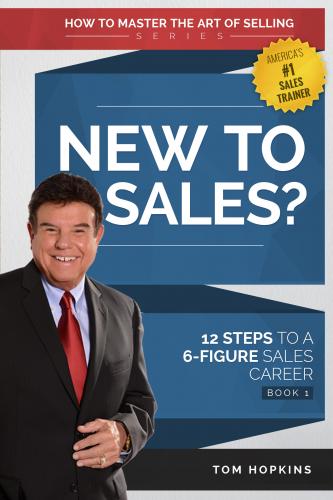Why should you only feel good when things are going well? That’s what the salesperson does whose idea of selling is to stand around until someone comes in and demands to buy. When you’re with Champions, you can’t tell whether things have gone well or poorly for them the previous hour, day, week, or even month. How can they hide their feelings this way?
Well, in the first place, they aren’t hiding their feelings. They are excited about life. They know they’ll have challenges—if not this week, then next week. They know that over a five-year period, some seasons will be better than others. They live very much in the present but they don’t forget that tomorrow is coming right on schedule. They know that no matter whether they’re having good or bad luck today, it will change—but what won’t change is their superior performance regardless of circumstances. They bring their own sunshine. They make their own luck. They don’t let little things bother them. If they have an irate client, they handle it. They solve the problem. Then they move on.
And Champions know that, no matter how good they get, they’re still going to fail some of the time between their successes. It’s all a part of the game we call selling. So, they don’t have to hide their true feelings while they’re failing because they’re still filled with enthusiasm.
Ten. The top people I train get emotionally involved with the folks they serve. Champions really care about their clients, and this true feeling comes through loud and clear to the people they’re selling. That’s why Champions get so many referrals to other potential clients. I don’t think any salesperson ever made much money without a rich flow of well-deserved referrals. I’ll show you the techniques to use to get a lot of referrals because most people won’t think of these by themselves, but the secret behind the techniques is caring.
When the buyer of your offering sees the cash register behind your eyes ringing up your earnings if he says yes, he’ll automatically fight you. He’ll see that you care more about making the sale than making him happy. Instead of giving him a powerful emotional reason to want to do business with you (because he can see that you really care about his welfare) you’ve given him a powerful emotional reason for avoiding doing business with you.
You may find this hard to believe, but I’ve met a few salespeople who hate other people. Out of the millions in sales, there are a few thousand who can’t stand their fellow humans. And some of them manage to make fairly good money in this business. But I never knew one who wasn’t always scrambling from job to job, because people haters make enemies faster than they make money. Champions, on the other hand, tend to stay with what they’re doing for a long time. And they use some of the generous money they’re making to build their clientele. It all comes about because they’re experts not only in sales but also in caring.
Eleven. Do you take rejection personally? Maybe a client you’re working with, someone you’ve made your entire presentation to, decides to talk to your competitor and says he’ll call you next week. Not only does he fail to call you, he doesn’t answer the number you have for him. When you find him the following week, he’s already bought from your competitor.
Конец ознакомительного фрагмента.
Текст предоставлен ООО «ЛитРес».
Прочитайте эту книгу целиком, купив полную легальную версию на ЛитРес.
Безопасно оплатить книгу можно банковской картой Visa, MasterCard, Maestro, со счета мобильного телефона, с платежного терминала, в салоне МТС или Связной, через PayPal, WebMoney, Яндекс.Деньги, QIWI Кошелек, бонусными картами или другим удобным Вам способом.
